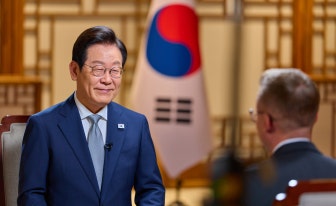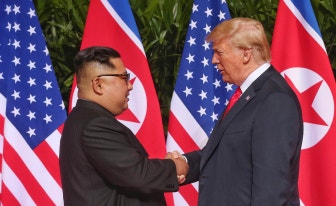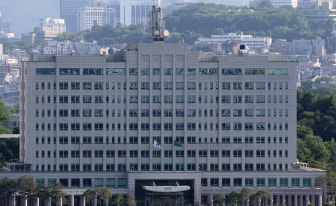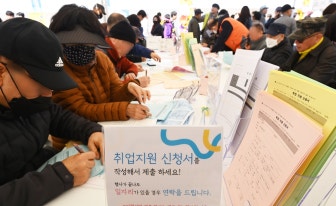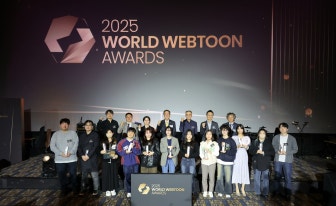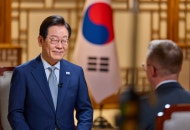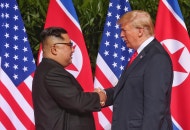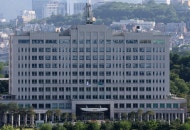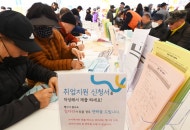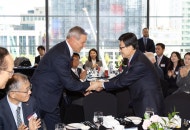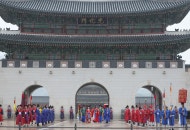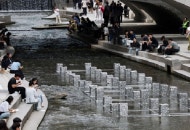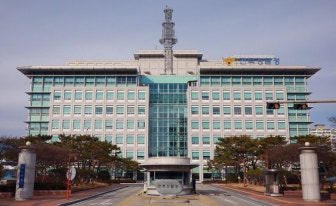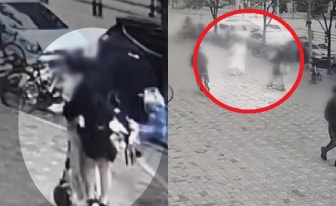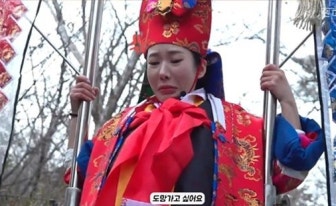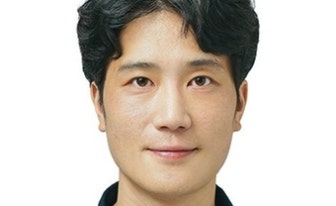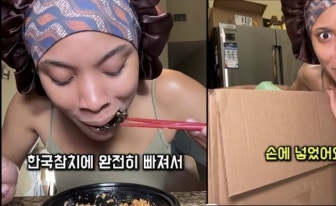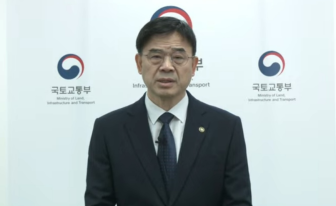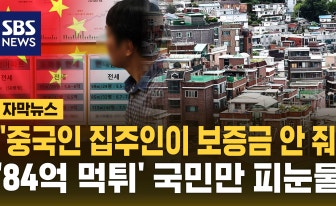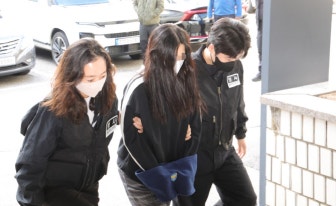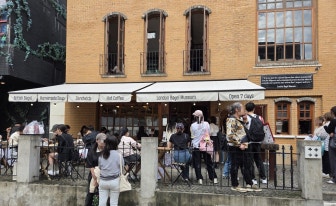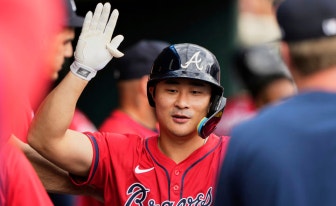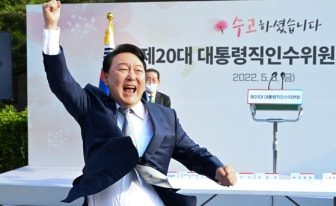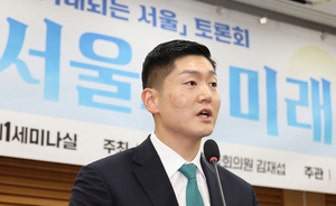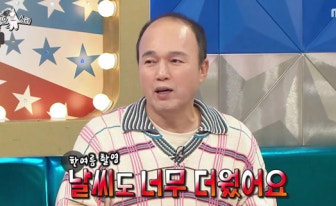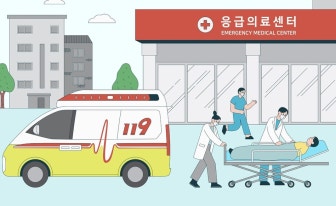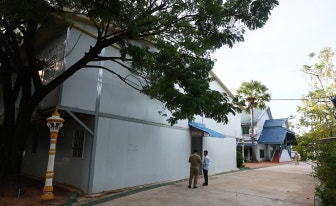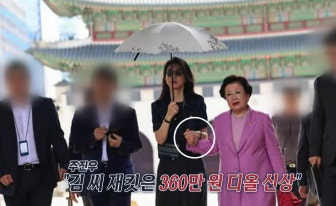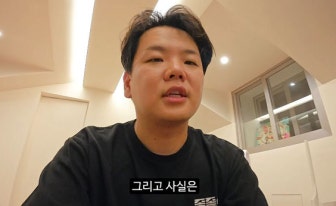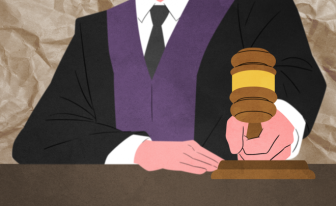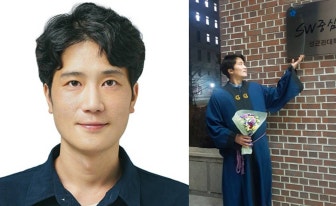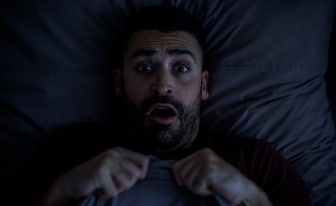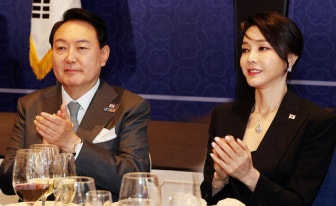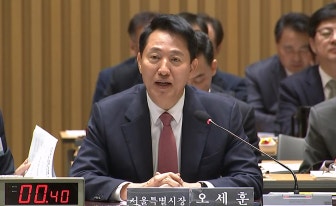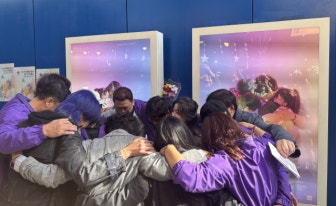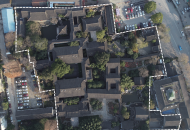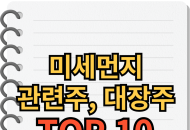| Kim Sang-hwan (left), chief justice of the Constitutional Court, speaks during a parliamentary audit by the National Assembly’s Legislation and Judiciary Committee at the Constitutional Court in Jongno-gu, central Seoul, on Friday. (Yonhap) |
Kim Sang-hwan, the chief justice of the Constitutional Court, expressed support during an Assembly audit Friday for allowing constitutional complaints against Supreme Court rulings, saying such a mechanism could enhance the protection of basic rights.
While Kim stressed that the matter should ultimately be determined by lawmakers, he acknowledged that recognizing judicial rulings as subject to constitutional review could be “an ideal direction” for ensuring people’s rights.
His remarks came as lawmakers debated during the audit session whether the Constitutional Court should be allowed to review Supreme Court rulings.
The discussion centered on constitutional complaints against court rulings, one of the key ideas expected to be included in the ruling Democratic Party of Korea’s forthcoming judicial reform plan to be unveiled next week.
“The question of whether a law excluding court rulings from constitutional complaints complies with the Constitution has long been debated,” Kim said during closing remarks at the National Assembly’s Legislation and Judiciary Committee audit of the Constitutional Court in Jongno-gu, central Seoul. “It is an ideal direction in terms of protecting basic rights, but one that must be resolved by the legislature.”
Kim also said that the court “has maintained the same position since its 1997 decision, recognizing that all state powers, including the judiciary, are bound by the Constitution.”
Kim, appointed in July under President Lee Jae Myung, added that the court would present its accumulated research if public discussions on the issue moved forward.
As is customary, Kim left the chamber after his opening remarks and returned later to deliver his closing statement. The main portion of the audit was attended by Constitutional Court Secretary-General Son In-hyuk, who responded to lawmakers’ questions.
People Power Party lawmakers argued that allowing the Constitutional Court to review Supreme Court rulings would, in effect, introduce a fourth instance of appeal beyond the current three-tier judicial system.
Rep. Cho Bae-sook of the People Power Party asked whether the proposed reform would “in fact establish a four-tier judicial system,” warning that it could delay final rulings and hinder effective redress.
Rep. Kwak Kyu-taek of the People Power Party pointed to rising case backlogs within the Constitutional Court, saying the number of pending cases had more than doubled in the past five years.
“If the public can refile cases claiming their rights were violated by court judgments, the system will face uncontrollable overload,” he said.
In response to lawmakers’ claim that the reform would create a “fourth instance” of appeal, Son said such concerns were "misplaced."
“The Constitutional Court’s jurisdiction differs from that of ordinary courts. Even in Germany and Spain, only about 100 to 200 such cases reach full bench review each year — a level our current resources could handle,” he said.
Son added that the court could strengthen preliminary reviews and admissibility rules to prevent excessive caseloads.
Rep. Na Kyung-won of the People Power Party also raised concerns that the reform could undermine judicial independence.
“If one administration appoints a large number of justices while expanding the Supreme Court and granting the Constitutional Court review power over its rulings, it could lead to political influence over the judiciary,” Na said.
The Friday audit at the Constitutional Court followed two sessions earlier this week targeting the Supreme Court, during which lawmakers from the ruling Democratic Party grilled Chief Justice Jo Hee-de over accusations that he interfered in the June 3 presidential election.
On Monday, Democratic lawmakers requested access to records from full-bench deliberations, arguing that Jo had convened a full bench earlier this year to remand a case involving President Lee Jae Myung’s election law violation to a lower court — a move they claimed was intended to prevent then-Democratic Party candidate Lee from standing for election in the presidential race.
Jo, in his opening remarks at the Monday audit, expressed opposition to forcing judges to testify about trials, saying it could undermine their ability to rule according to the Constitution, the law and their conscience. He initially stayed at the session under pressure from lawmakers to remain throughout the questioning, but left during a recess and did not return afterward.
On Wednesday, the committee conducted an on-site inspection at the Supreme Court’s headquarters in Seocho-gu, southern Seoul, reviewing internal documents and facilities, which drew strong protests from the main opposition People Power Party that accused the committee of violating the separation of powers.

